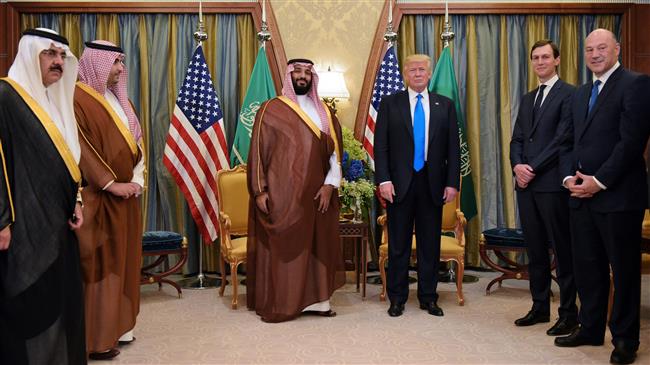
RNA - An article by The New York Times’ White House correspondent on Sunday explained why Trump was sticking with Mohammed even as “evidence piles up pointing to the Saudi crown prince’s responsibility in the brutal killing of the dissident journalist Jamal Khashoggi.”
Khashoggi was assassinated by a hit squad of 15 Saudi Arabian agents — including a frequent companion of Mohammed’s and some members of his security detail — inside the Saudi consulate in the Turkish city of Istanbul on October 2.
Turkey “moved heaven and earth” to bring international attention to the killing. As that attention was attracted, Saudi Arabia became incapable of quietly getting away with the assassination.
Riyadh has several times altered its narrative on the killing. Initially, it denied the killing altogether. After 18 days of blatant denial, Riyadh finally acknowledged the killing but said Khashoggi had been killed in a “rogue” operation that had gone haywire. Still later, on Thursday, November 15, the Saudi Public Prosecution offered yet another account, saying the 15 agents had acted on “an order to bring back the victim (Khashoggi) by means of persuasion, and if persuasion fails, to do so by force” but had then went on to kill him on their own.
Citing informed sources, The Washington Post reported on November 16 that the CIA “has concluded that Saudi Crown Prince Mohammed bin Salman ordered the assassination.”
Trump, who had already refused to directly implicate Mohammed, then defied his own country’s intelligence agency by saying that the CIA assessment was “very premature.”
The New York Times said in its Sunday article that Trump had basically three reasons why he was resisting blaming Mohammed.
It said Saudi Arabia — which is under the de facto rule of Mohammed — is “a linchpin” of the Trump administration’s hawkish strategy on Iran. The Saudi crown prince also has a close relationship with Trump’s son-in-law, Jared Kushner, who is pursuing what he thinks would be a peace deal between Israelis and Palestinians. And lastly, Mohammed has pledged to buy 110 billion dollars’ worth of American military equipment.
The stance is “a vivid illustration of how deeply Mr. Trump has invested in the 33-year-old heir [to the Saudi crown], who has become the fulcrum of the administration’s strategy in the Middle East — from Iran to the Israeli-Palestinian peace process — as well as a prolific shopper for American military weapons, even if most of those contracts have not paid off yet,” the article read.
‘Even Israel...’
All of that has worked to dissuade the American president from blaming Mohammed for the murder of Khashoggi, a position, according to the Times, that is “increasingly isolated” on a global scale.
“The European Union has demanded ‘full clarity’ from the Saudis about the killing of Mr. Khashoggi,” the article said. Even Israel, “with strategic ties to Saudi Arabia, is not vocally defending” Mohammed, it added.
All the three reasons mentioned by The New York Times have to do with Trump’s personal agenda for his presidency. He has long promised to pressure Iran, broker what he likes to tout as the “deal of the century” while awkwardly working to anger the Palestinians by moving the US embassy to Jerusalem al-Quds, and creating jobs in America supposedly with the sale of American military hardware to rich Arab governments.
Failure on any of those fronts would potentially make Trump look bad in the eyes of his base.
‘Fractures inside the White House’
Separately, the Times reported that a top White House official responsible for American policy toward Saudi Arabia — including recent sanctions on Saudi Arabian nationals over the killing of Khashoggi — had resigned on Friday.
It called the resignation “a move that may suggest fractures inside the Trump administration over the response to the brutal killing of” Khashoggi.
Meanwhile, Saudi Arabia has attempted to shift the blame for Khashoggi’s murder to Mohammed’s underlings, including at least one of his advisers. But it has claimed that the criminality somehow stops short of reaching the crown prince himself.
Riyadh has also failed to produce Khashoggi’s body as of yet.
847/940